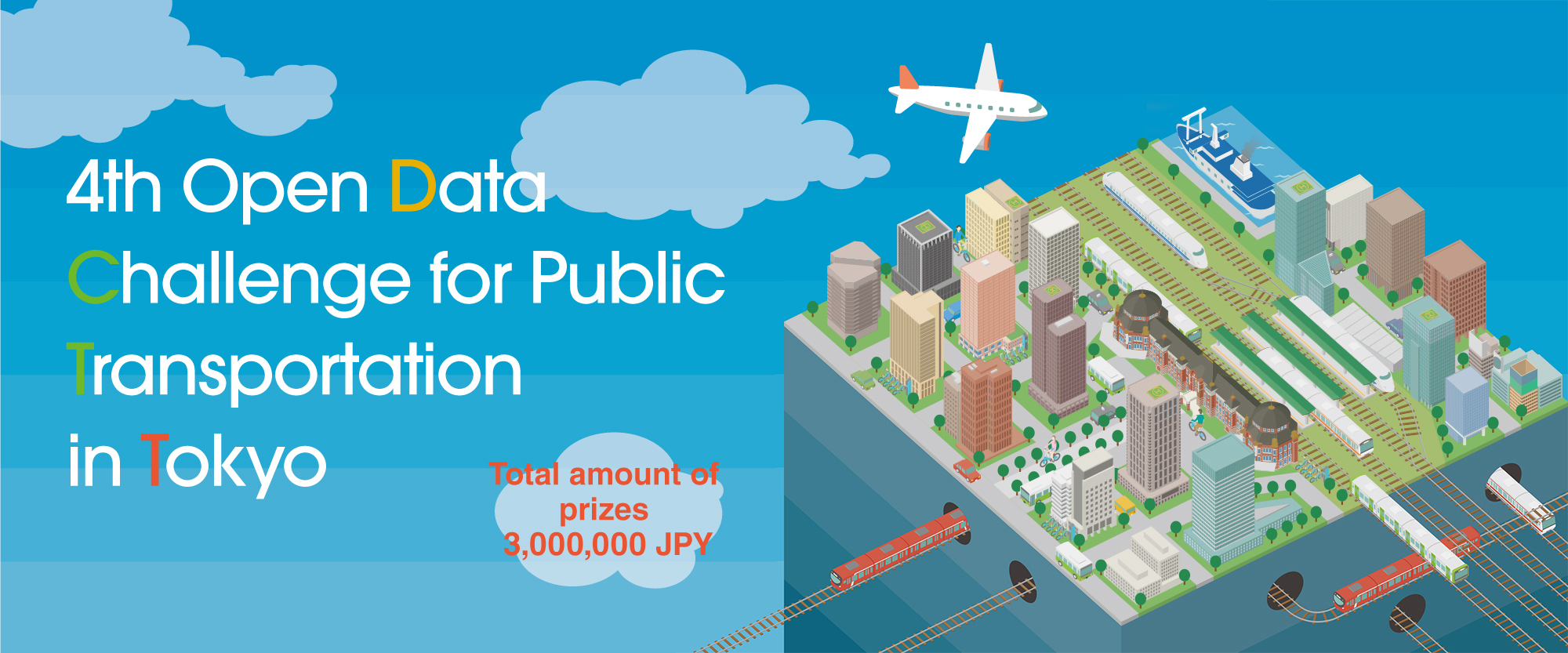

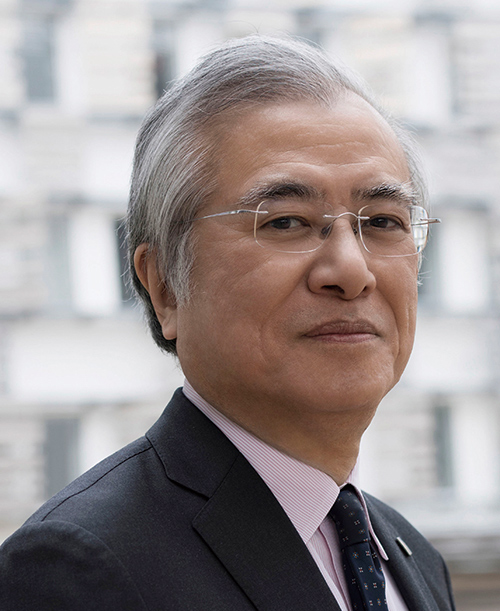
Ken Sakamura
Chair of Association for Open Data of Public Transportation, Dean of the Faculty of Information Networking for Innovation And Design (INIAD), Toyo University
"Association for Open Data for Public Transportation (ODPT)" has been established as an NPO in 2015 with the participation of many public transportation operators, ICT stakeholders and academic institutions. ODPT has been working to build a data platform for the open distribution of public transportation data in Japan, where a large number of private transportation operators exist. Open Data Challenge for Public Transportation in Tokyo is an annual contest that has been held since 2017 by ODPT as the main host. Each time, this challenge released data on a large number of public transportation systems and called for applications that would help a wide variety of people, including foreigners and people with disabilities, to use public transportation to move smoothly and stay comfortably in Tokyo.
This 4th challenge was originally scheduled to run until the fall of 2020, when the Tokyo 2020 Olympic and Paralympic Games were originally planned to be held. However, considering the COVID-19 outbreak, we decided to extend the application period by one year. In the end, public transportation data from a total of 54 operators, including railroads, buses, airlines, and ferries, as well as station map data, human flow-related data, and data on shared bicycles were made available, and approximately 1,500 developers registered from Japan and overseas. Based on the conclusion of a fair and strict judge meeting, we have decided to give three Grand Awards, three Excellence Awards, and three Judges' Special Awards to selected entries.
As I write this in Tokyo at the end of 2021, the Tokyo 2020 Olympic and Paralympic Games are over now, and it seems as if things are gradually returning to normal. However, we are still halfway to overcoming the COVID-19 disaster globally. On the other hand, digital technology and open data can be effective weapons in these difficult times. In fact, both the national government and the Tokyo Metropolitan Government have been actively releasing data related to COVID-19 infections, and have been working to improve society through an open approach with the help of third party developers. I believe that this challenge and the many developers who participated in it have contributed in many ways to creating such a new trend in society. After this challenge is over, we will continue to work to develop an open platform for public transportation data in Japan, with a focus on the Public Transportation Open Data Center, which releases such data continuously.
We deeply thank all the developers who submitted applications and all people who cooperated to hold this contest successfully, including the public transportation operators. Thank you all for your continuing support.
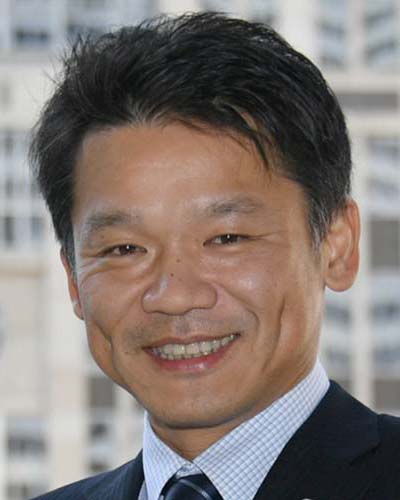
Manabu Miyasaka
Vice Governor, Tokyo Metropolitan Government
Thank you to all the participants of the 4th Open Data Challenge for Public Transportation in Tokyo for submitting so many entries.
Same as last time, the Tokyo Metropolitan Government (TMG) participated in this contest as a co-host. I would like to pay tribute once again to the Association for Open Data of Public Transportation, which has been a pioneer in organizing the challenge since 2017, and to all the public transport operators who have provided data.
Many of the works and ideas submitted this year are based on the idea of using public transportation data to provide advanced urban services that would allow people from all walks of life, including first-time visitors to the Tokyo metropolitan area and people with disabilities, to smoothly reach their destinations, regardless of whether they are outdoors, indoors, or underground. I can visualize such services being provided based on the submitted works.
The TMG has been promoting various initiatives to realize the Tokyo version of Society 5.0, "Smart Tokyo," where the TMG citizens shall enjoy high quality of living by fulfilling the full potential of Tokyo using digital technology. In order for Tokyo to become a sustainable, smart city with the highest quality of life in the world by using digital technology over the life style of its residents and the city as a whole, it is necessary to make the most of the power of data.
Therefore, to utilize data throughout society and solve diversifying administrative issues, the TMG will build a public-private collaboration model in which data held by the government will be proactively released to the public based on the needs of the private sector, and companies and civic tech will create new services by utilizing open data, etc.
The TMG will also try building momentum for the promotion of open data, such as by holding the Governor's Cup and Open Data Hackathon for the first time this year, so that the private sector can create new services.
To accelerate these efforts and make Tokyo’s convenience and affluence felt by many people who live and visit the city, we will continue to collaborate with the Association for Open Data of Public Transportation and other organizations that have been making available the data of public transportation such as railways, buses and airlines, aiming to smooth out public transportation systems in Tokyo, which are said to be the most complex in the world.
Once again, I would like to thank everyone who participated in this challenge, and wish everyone at the venue good health and continued success in the future.

Ken Sakamura
Chair of Association for Open Data of Public Transportation, Dean of the Faculty of Information Networking for Innovation And Design (INIAD), Toyo University
I feel that the fourth Open Data Challenge for Public Transportation in Tokyo has attracted more polished submissions than ever.
Based on the conclusion of a fair and strict judge meeting, we have decided to give three Grand Awards to selected entries. "Tratal – Transport Information Portal 2021" is the brushed-up version of the previous award-winning work. It garnered high praise for its extensive functions and completeness, covering railroads, buses, airlines, ferries, and shared bicycles, and even comes with a LINE bot version. The "Mitu-yoho," which estimates congestion by combining floating population data and traffic data, was highly evaluated in terms of avoiding the Three Cs (Crowded places, Close-contact settings and Confined and enclosed spaces) in the COVID-19 age. "Public Transportation Irregular Event Notifier (PIEN🥺) for Tokyo" with its cute illustrations was also a breakthrough in the provision of public information, which tends to be not light-hearted.
For Excellence Award, we selected three submissions in terms of perfection, ideas, etc. "Railway operation simulation game" was created based on the concept of a simulated experience of railway operation planning. "TrainNavi V2," which helps you to select transfer trains from your current train position, is also the brushed-up version of the previous award-winning work. "Timely" tells you the expected real-time arrival time of the bus that will soon arrive at a nearby bus stop.
Judge's Special Awards are given to the following submissions: "TiMAP: Tokyo space-time map," "Mini Tokyo 3D 2021" and "Tokyo LIVE Route Map."
In this challenge, the service providers of private sector could use the data. As a result, the data was used by "Jorudan Japan Transit Planner Route Search," "NAVITIME," "Google Maps," "Citymapper Live Bus, Metro & Train Times" and "Rome2rio."
In this challenge, I was also impressed by the number of works that are continuation of the past works in brushed-up form, as well as works with high level of perfection achieved by students. I would like to express my respect for efforts extended by participants.
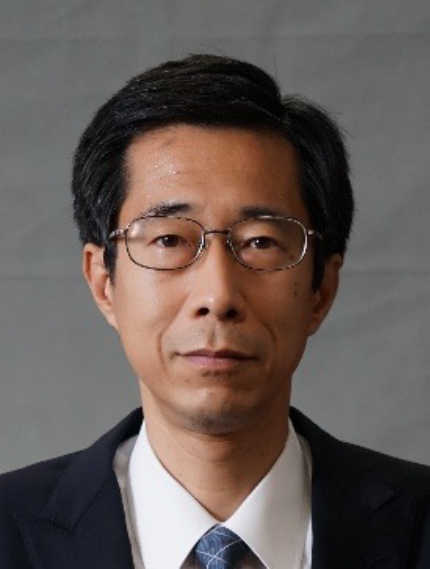
Yasuhiro Kushida
Deputy Vice-Minister for Cyber Security and Information, Ministry of Land, Infrastructure, Transport and Tourism
It is expected that industries and lifestyle of people will be greatly transformed by “Open Data” initiative which promotes digitalization of various types of data and makes them available freely to everyone.
The Government of Japan has been promoting this “Open Data” initiative under the Basic Act on the Advancement of Public and Private Sector Data Utilization. Under this initiative, the Ministry of Land, Infrastructure, Transport and Tourism (MLIT) has been promoting “Open Data” initiative in its responsible areas with the cooperation of related businesses, as well as providing digitalized data on its public services.
The public transport sector is expected to greatly improve user convenience by providing more information which makes it easier to travel across multimodal transport systems. This time, we have found works useful for crisis management such as information provision and congestion forecast in case of delays and cancellations, as well as many excellent applications on multi-modal route search and operation status information. We also have found works that could be used for social problem solutions and various types of businesses such as search for environmentally friendly route and transport time map, hence open data on public transport are expected to create value in wider area in the future.
I am deeply grateful for the efforts of the contestants realizing such diverse ideas. The MLIT continuously makes efforts on “Open Data” initiative.

Hanatsu Takahashi
Senior Director for Data Utilization, Bureau of Digital Services, Tokyo Metropolitan Government
Thank you for allowing me to judge so many wonderful entries.
The Tokyo Metropolitan Government (TMG) has been participating in this contest as a co-host since the third installment. I saw many entries with innovative ideas, services with heavy emphasis on user's perspective, and entries from overseas that could not have been realized by the government alone this time again.
It was hard to choose just one Grand Prize-winning work, so the three entries won it.
"Tratal – Transport Information Portal 2021" garnered high praise for its full use of open data on public transportation, including not only railroads and buses, but also ferries, flights, and shared bicycles, as well as its easy-to-understand UI.
The "crowd forecast" based on "traffic data and floating population data" made me sense the great potential of combining different data sets.
“Public transport Irregular Event Notifier (PIEN🥺) for Tokyo" provides information in a very user-friendly manner, which should be studied by the TMG.
"Mini Tokyo 3D," the previous Grand Prize-winning work, has been upgraded greatly, and can be described as a digital twin of public transportation in Tokyo with a high level of perfection.
The private sector services that many people use have implemented convenient services that utilize open data lately. We are very much aware of the significance of publishing open data.
The TMG will continue to enhance the appeal of open data and establish a style of public-private collaboration to create new services that will improve the quality of life of Tokyo residents.
Once again, I would like to thank everyone who participated in this contest. Thank you very much.
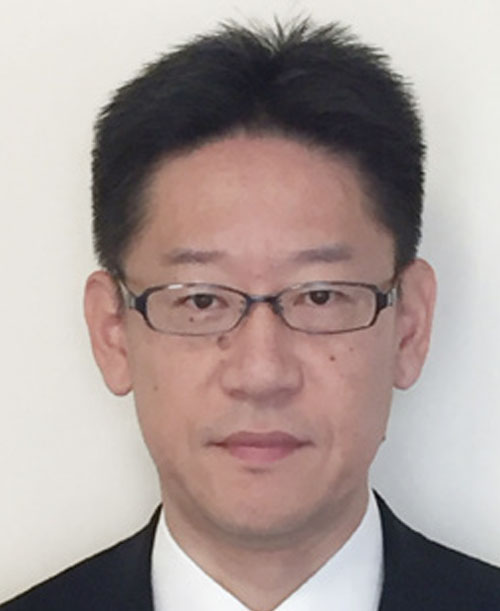
Isao Sato
General Manager, Technology Innovation Headquarters, East Japan Railway Company
Open Data Challenge for Public Transportation in Tokyo has been held three times so far. Each time, we received many wonderful entries that enhance the convenience of transportation services and provide enjoyable travel experiences for people using public transportation.
This was the 4th Open Data Challenge for Public Transportation in Tokyo. Since the Tokyo Olympics and Paralympics would be held during the same period, I was looking forward to seeing many works that would help people, who do not normally visit Tokyo, to get around without inconvenience using public transportation there. In the end, this competition received a great number of applications that far exceeded my expectations. I had a chance to watch the works one by one, and I feel the quality of them has been getting higher and higher at every competition, and that many of them are not only convenient but provide new values to the world. Unfortunately, the Tokyo Olympics and Paralympics were held without spectators at most venues. However, I am very pleased that works that encourage "movement" which is originally supposed to be fun were created through this challenge.
We would like to thank all the applicants for their efforts to turn a wide variety of ideas into apps by utilizing various types of data such as transportation data during the past four public transportation open data challenges.
We sincerely appreciate your participation. Thank you.
| Grand Award | Tratal – Transport Information Portal 2021 | Mr. Haruki Kameda |
| Mitu-yoho | Mr. HATANO Yuta and Mr. SANAMI Tetsuro | |
| Public Transportation Irregular Event Notifier (PIEN🥺) for Tokyo | Mr. Akihiko Kusanagi | |
| Excellence Award | Railway operation simulation game | Ms. Marina Fujita |
| TrainNavi V2 and visualization method of train delay results | Mr. Akihiro Okuda and Mr. Tokiichiro Takahashi | |
| Timely | Mr. Takaki Ishibashi | |
| Judge's Special Award | TiMAP: Tokyo space-time map | nibbles |
| Mini Tokyo 3D 2021 | Mr. Akihiko Kusanagi | |
| Tokyo LIVE Route Map | Mr. Hannes Junnila |
| East Japan Railway Special Award | Human ~Human(Human being)×Human(dissatisfied)~ | Doshisha University Miyazaki Seminar Team “Eemon” Ms. Saki Itoh Ms. Hinako Takahashi Ms. Nanami Tanigo Mr. Ryunosuke Hayashi Mr. Ryo Muramatsu |
| Toei Transportation Special Award | TobusR 2 | Mr. Yoji Shirai |
| Navisuke | imigner | |
| Tokyo Bus Walk | Mr. Ryo Kobayashi | |
| INIAD Special Award | traffic viewer | Four shift operation reference room |
| Tokyo TravelKit | Mr. Tongze Wang | |
| Tokyo Train Delay | Mr. Chanon Limpipolpaibul, Mr. Kohei Horiguchi and Mr.Shuei Oshikubo | |
| antrace(untrace) | Doshisha University Miyazaki Seminar Team “Untrace” Ms. Ayaka Nakamura, Mr. Keisuke Kono, Mr. Soma Yano, Ms. Mai Nagai, Mr. Koki Shinnaka, Mr. Kanta Ueda, Mr. Ryuta Kajiya, Mr. Reo Miyata, Mr. Junichi Okubo, Ms. Momono Kataoka and Ms. Sayuri Yamamoto | |
| Train diagram builder | Saitama University Faculty of Engineering Department of Mechanical Engineering Mr. Ryutaro Ishino, Mr. Masaya Fujimori, Mr. Touya Kobayashi, Mr. Hajime Ozaki, Mr. Yusei Arai |
The data had been used for no-profit works before, but was used also for private, for-profit services in the 4th Open Data Challenge for Public Transportation in Tokyo.
Examples of data utilization by three member companies and two overseas companies are introduced here.
| Japan Transit Planner | Jorudan Co.,Ltd. |
| NAVITIME | NAVITIME JAPAN Co., Ltd. |
| Google Maps | Google Japan G.K. |
| Live Bus, Metro & Train Times | Citymapper |
| Rome2rio | Rome2rio |